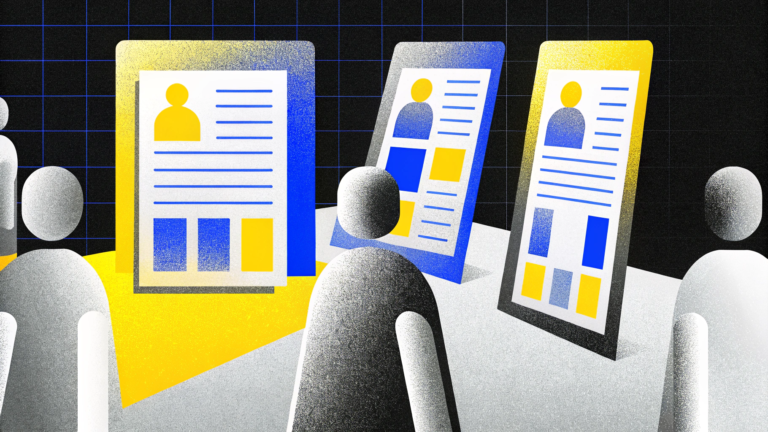Cognition AI & Devin: Inside the AI Startup That’s Replacing Junior Developers

Cognition AI, Inc., often recognized simply as Cognition, is a pioneering artificial intelligence (AI) company revolutionizing the software development landscape. Founded in November 2023, the company is headquartered in the heart of Silicon Valley, San Francisco, California. (Cognition)
The startup was the brainchild of three exceptionally talented individuals: Scott Wu, Steven Hao, and Walden Yan. United by their shared passion for computer science and a history of competitive programming, the trio embarked on a mission to fundamentally change how software is created. All three founders are distinguished alumni of the International Olympiad in Informatics (IOI).
Cognition identified a critical problem within the software development industry: the increasing complexity and time-consuming nature of coding tasks. As software projects grow in scale and complexity, developers often find themselves bogged down by repetitive tasks, debugging, and code maintenance. Cognition saw an opportunity to leverage AI to alleviate this burden, empowering developers to focus on higher-level design and innovation.
Devin AI is designed to serve as an autonomous AI software engineer, capable of performing a wide range of coding tasks with minimal human intervention. From writing code and fixing bugs to updating existing systems, Devin aims to streamline the software development process and significantly improve efficiency.
From Olympiad Gold to Silicon Gold: How Three Coding Prodigies Built Devin
Cognition AI began not in a sleek Silicon Valley office, but in a rotating series of Airbnbs and home offices, with a tight-knit team of just ten extraordinary minds split between San Francisco and New York. It was founded by Scott Wu, Steven Hao, and Walden Yan in November 2023. Initially, Cognition’s focus was on the cryptocurrency space, but sensing a more significant opportunity, the founders pivoted their attention to AI following the surge in interest generated by OpenAI’s ChatGPT. This marked a strategic shift, leading to the development of their flagship product, Devin AI. (Scott Wu)
Scott Wu, who serves as the CEO, attended Harvard University and a former competitive programming prodigy with a legendary ranking on Codeforces and a Forbes 30 Under 30 alum. Before founding Cognition AI, Wu co-founded Lunchclub, an AI-driven networking platform that utilizes AI to book networking meetings. He left the company in 2022 to pursue his interests in AI research and development.
Scott teamed up with two equally brilliant coders: Steven Hao, previously a top engineer at Scale AI, and Walden Yan, a Harvard wunderkind and International Olympiad in Informatics (IOI) gold medalist who hadn’t yet broken the news to his parents that he had dropped out. All three founders had met through the global competitive programming circuit. (Steven Hao)
They called their creation Devin—an autonomous AI software engineer that could do more than autocomplete code. It could think, plan, test, debug, and ship software. When it was first tested in late 2023, the team found themselves stuck setting up a complex data server. Out of curiosity and desperation, they handed the problem over to Devin. It executed a series of commands the team could barely follow—“black magic,” Walden Yan would later call it—and suddenly, after hours of frustration, a long-dead server came back to life. That was Devin’s first major task. And it was also Cognition’s eureka moment. (Walden Yan)
$26 Billion and Counting: Why the World is Betting Big on AI Code Tools
The global AI code tools market is experiencing rapid growth, driven by the increasing complexity of software applications and the need for efficient development solutions. In 2023, the market size was estimated at USD 4.86 billion. Projections indicate a strong growth trajectory, with the market anticipated to reach USD 26.03 billion by 2030. This expansion corresponds to a robust compound annual growth rate (CAGR) of 27.1% from 2024 to 2030. (Grand View Research)
Several factors contribute to this market growth. The increasing complexity of software development necessitates advanced tools that can manage intricate coding requirements and accelerate the development process. AI-powered tools, with their advanced algorithms, improve accuracy and speed up development, becoming indispensable for businesses and developers. The growing investment in AI code tool startups further fuels market advancement. The funds are used to innovate, create cutting-edge technologies, and improve existing tools.
Regionally, North America dominated the AI code tools market in 2023, capturing a revenue share of over 38.0%. This dominance is primarily attributed to the region’s robust infrastructure, extensive investments in AI research and development, and a thriving ecosystem of technology companies and startups. The presence of major tech hubs like Silicon Valley, Seattle, and Boston fosters innovation and entrepreneurship in AI technologies. Supportive government policies, favorable regulatory environments, and a skilled workforce further bolster North America’s leading position.
The Asia Pacific region is anticipated to register the fastest CAGR over the forecast period. This rapid growth is fueled by rapid digital transformation, a large population of tech-savvy consumers, and a burgeoning startup ecosystem. Countries like China, India, and South Korea are making substantial investments in Al infrastructure and talent development. Proactive adoption of Al across sectors is also contributing to market growth.
AI Meets Ingenuity: Cognition’s Plan to Free Developers from Bug Fixing Hell
Cognition AI is driven by a mission to augment and empower human ingenuity with the power of AI. Their vision is a world where AI handles the more time-consuming and routine aspects of software engineering, freeing up human developers to focus on creative problem-solving, innovative design, and higher-level architectural considerations.
The primary problem Cognition AI seeks to solve is the increasing complexity and demand for software development, combined with a relative shortage of skilled engineers. Traditional software development often involves a significant amount of repetitive tasks, bug fixing, code maintenance, and platform migration. These activities consume a substantial portion of a developer’s time, limiting their ability to focus on more strategic and innovative projects. Devin AI, the company’s AI software developer, aims to address these issues.
Devin can perform tasks such as bug fixing, code maintenance, and even updating outdated code architecture, thereby saving customers time and resources. Devin has access to the same developer tooling, like a terminal/command line, a browser, and a code editor. Devin can solve problems like a real software engineer. A project manager can give Devin some requirements through plain English text, and Devin will respond by creating a plan of action, going to the web to fetch API documentation needed, start writing the code, run the code, gets an error and fixes the code and repeats this in an infinite loop until the original problem is solved.
Cognition AI operates on a business model centered around providing AI-powered software development tools to enterprises and individual developers. Their 10-person team, as of March 2024 has won a total of 10 IOI gold medals. Apart from its founders, other members of the team who are gold medalists include Wu’s brother Neal, Gennady Korotkevich and Andrew He.
Beyond Autocomplete: A Look Under the Hood of Devin and Cognition’s AI Toolbox
Devin stands out as a fully autonomous AI software engineer designed to integrate seamlessly into existing engineering teams, boosting productivity and fostering innovation. Beyond Devin, Cognition AI provides a suite of tools designed to optimize various stages of the software development lifecycle.
Devin: The AI Software Engineer
Devin is engineered to autonomously handle a wide range of software development tasks, effectively acting as a collaborative teammate within an engineering environment. Some of Devin’s key capabilities include:
- Coding and Debugging: Devin can autonomously write, test, and debug code across multiple programming languages. This significantly reduces the burden of manual coding and debugging efforts typically required from human developers.
- Deployment: Managing the deployment process is another key feature. Devin ensures that applications are correctly configured and smoothly launched into their intended environments.
- Continuous Learning: Devin continuously enhances its capabilities by learning from new AI models and integrating them into existing codebases. This ensures Devin remains up-to-date with the latest technological advancements in the field.
- Collaborative Integration: Devin is designed to seamlessly integrate with existing engineering workflows, working alongside human developers on projects regardless of complexity or scale.
Additional Tools and Integrations
Cognition AI offers a complementary set of tools that augment the software development process:
- GitHub Integration: Enhances developer collaboration on GitHub by providing automated code suggestions and reviews, which ultimately improves code quality.
- Command Line Applications: Automates tasks usually performed by developers through Devin, therefore streamlining the development workflow.
- Browser-Based Solutions: Delivers browser-based tools that provide access to powerful AI functionalities, independent of a developer’s device or operating system.
Use Cases and Applications
The versatility of Cognition AI’s solutions allows them to be used across diverse aspects of software development:
- Software Development: Automates coding and debugging to streamline project development from start to finish.
- Bug Fixing: Efficiently identifies and resolves bugs within codebases.
- AI Model Development: Aids in the training and refinement of AI models for advanced machine learning projects.
- Accelerating Timelines: Speeds up engineering workflows, enabling faster project delivery.
- Enhancing Collaboration: Acts as a virtual teammate, alleviating manual workloads and freeing up time for strategic tasks.
Target Audience
Cognition AI’s products and services are primarily aimed at:
- Software Developers and Engineering Teams: Who are looking for AI-powered collaboration to improve coding efficiency.
- Tech Startups: Seeking streamlined software development and maintenance processes.
- Educational Institutions: Interested in using AI-driven tools for coding education.
- Enterprises: Aiming to incorporate AI solutions into their infrastructure to enhance productivity.
Devin in Action: The AI Engineer That Codes, Debates Bugs, and Ships Software
Cognition AI’s technology lies in a suite of advanced AI capabilities that enable Devin to function with minimal human intervention. Devin can autonomously generate code snippets and entire modules, significantly accelerating the software development process. Beyond mere code generation, Devin is also equipped to debug and test code, ensuring that it functions correctly and performs optimally. This capability is crucial for maintaining the quality and reliability of software applications. Furthermore, Devin can manage the deployment of applications across diverse environments, streamlining the release process and reducing the potential for errors. Cognition AI emphasizes the importance of continuous learning, and Devin is designed to learn from new data and integrate new technologies, ensuring that it remains at the forefront of AI capabilities.
Cognition AI’s platform is designed for seamless integration with existing Continuous Integration and Continuous Deployment (CI/CD) pipelines, enhancing software delivery processes. This integration streamlines development cycles, leading to faster and more efficient software releases. The cloud-based nature of Cognition AI’s solutions provides further flexibility and scalability. Fully compatible with major cloud platforms, businesses can easily deploy Cognition AI’s solutions and integrate them into their existing infrastructure. This cloud-based approach allows for easy scaling of operations to meet evolving business needs.
Cognition AI also provides AI-powered analytics and data visualization tools to cater to businesses seeking data-driven decision-making solutions. This feature empowers organizations to effectively derive insights from their data, facilitating better-informed strategic decisions. Data privacy and security are paramount at Cognition AI.
Robust encryption protocols and adherence to industry standards and regulations ensure that all data processed by their AI systems is protected against unauthorized access and breaches, maintaining the confidentiality and integrity of client information. The AI system learns and reasons in real-time, adapting to new information. This continuous learning capability enhances its effectiveness, improving its performance over time to provide increasingly accurate and relevant insights.
From Debugging Nightmares to AI Model Dreams: Where Cognition AI Fits In
Cognition AI’s ascent has been punctuated by significant achievements and widespread recognition. A key indicator of its potential is the substantial funding it has secured. In early 2024, the company successfully raised $21 million in funding, led by Peter Thiel’s Founders Fund, which valued Cognition AI at an impressive $350 million.
The company boasts a roster of individuals with impressive backgrounds in competitive programming. Notably, the founding team, including Scott Wu, Steven Hao, and Walden Yan, are all International Olympiad in Informatics (IOI) gold medalists. Furthermore, the team includes renowned programmers such as Gennady Korotkevich and Andrew He. The company’s focus on attracting top-tier talent has clearly contributed to its rapid rise and the industry’s recognition of its potential.
A key partnership was announced in May 2024 with Microsoft. Cognition AI is working with Microsoft to integrate Devin into the Azure platform. This collaboration is designed to take advantage of Azure’s cloud computing power. By using Azure, Devin’s performance and accessibility will be improved, giving users a strong and reliable place to use AI for software development.
Devin is also built to easily fit into existing software development setups. It works well with popular tools like GitHub, making team coding projects smoother. Devin can also be added to different continuous integration and deployment systems. This flexibility makes Devin a useful tool for development teams that want to add AI to their work processes.
They actively engage with developers and AI enthusiasts through online forums, workshops, and joint projects. This encourages the sharing of knowledge and helps everyone in the AI software engineering field improve together. By fostering this community, Cognition AI not only makes Devin better but also contributes to the overall growth of AI development.
From $21M to a $4B Valuation: Cognition AI’s Meteoric Rise, Round by Round
Cognition AI has secured a total equity funding of $196 million across three funding rounds, attracting investment from both institutional and angel investors. (Tracxn)
The company’s funding history reveals a significant Series B round in April 2024, amounting to $175 million with participation from Founders Fund. (Referencing: “Apr ’24 Series B $175.0M Institutional: Founders Fund News”). This was preceded by a $21 million Series A round in March 2024, also led by Founders Fund (Referencing: “Mar ’24 Series A $21.0M Institutional: Founders Fund News”). Additionally, Cognition AI completed another Series B round in March 2025, with undisclosed amount. The institutional investors are 8VC, Founders Fund, Khosla Ventures, and Conviction, along with angel investor Elad Gil.
Cognition AI’s post-money valuation has seen considerable growth. In March 2025, the valuation reached $4.0 billion, demonstrating investor confidence in the company’s potential. Earlier valuations were also substantial, with estimates ranging between $689 million and $3.0 billion in October and August 2024, and $2.0 billion in April 2024.
Cognition AI’s Future: Engineering the Next Generation of AI-Powered Developers
Cognition AI is a transformative force in the software development industry. With its flagship product, Devin, a fully autonomous AI software engineer, Cognition AI is redefining how code is written, tested, debugged, and deployed. The company provides a robust suite of tools that seamlessly integrates into existing engineering workflows, enabling developers to accelerate project timelines, maintain high code quality, and focus on strategic innovation rather than repetitive tasks.
From browser-based AI tools to command line applications and GitHub integrations, Cognition AI’s offerings are designed to empower individual developers, startups, and enterprises alike. Their cutting-edge approach, powered by a team of world-class engineers and backed by top-tier investors, positions them as a leader in the AI-driven evolution of software engineering.
If you’re an aspiring innovator or startup founder, let Cognition AI’s story inspire you to explore your own ideas. The world of AI and software development is brimming with opportunities—now is the perfect time to build, experiment, and push the boundaries of what’s possible. And if you’re looking for more stories about groundbreaking startups, don’t forget to check out other profiles and articles on Venture Kites—your window into the minds behind tomorrow’s most exciting ventures.
At a Glance with DORK Company
Dive In with Venture Kites
Lessons From Cognition
Start Lean, Then Pivot Boldly
The Lesson & Why it Matters: Startups rarely win by sticking to their first idea. Cognition AI began in crypto but switched to AI when they sensed a bigger opportunity. Staying nimble helps you survive—and thrive.
Implementation: Test ideas fast. Drop what doesn’t gain traction. Follow momentum.
How Cognition AI Implements It: They shifted focus entirely from crypto to AI when ChatGPT’s wave hit. That pivot gave birth to Devin.
Solve Real Pain, Not Just Interesting Problems
The Lesson & Why it Matters: The best products solve a burning pain. Cognition focused on the coding chaos developers face every day—debugging, maintenance, repetitive work.
Implementation: Talk to your users. Find their frustrations. Build solutions around them.
How Cognition AI Implements It: Devin automates mundane dev work, letting humans focus on design and strategy.
Your First Success Might Come by Accident
The Lesson & Why it Matters: Innovation often comes when you’re not looking for it. Devin’s first big win came from solving a server issue the team couldn’t crack.
Implementation: Stay curious. Try unconventional things. Document surprises.
How Cognition AI Implements It: They gave Devin a problem out of frustration—and it resurrected a dead server. That moment validated everything.
Build Tools that Integrate, Not Isolate
The Lesson & Why it Matters: Users don’t want to replace everything. They want tools that plug into what they already use.
Implementation: Design your product to work with existing workflows and platforms.
How Cognition AI Implements It: Devin integrates seamlessly with GitHub, CI/CD pipelines, and cloud platforms like Azure.
Invest in Real Infrastructure, Not Just Hype
The Lesson & Why it Matters: AI tools need performance, not promises. Fast, reliable, secure systems win.
Implementation: Prioritize backend performance, cloud integrations, and security.
How Cognition AI Implements It: They partnered with Microsoft Azure for reliability and scalability, ensuring Devin runs smoothly at scale.
Youtube Shorts
Author Details
Creative Head – Mrs. Shemi K Kandoth
Content By Dork Company
Art & Designs By Dork Company












